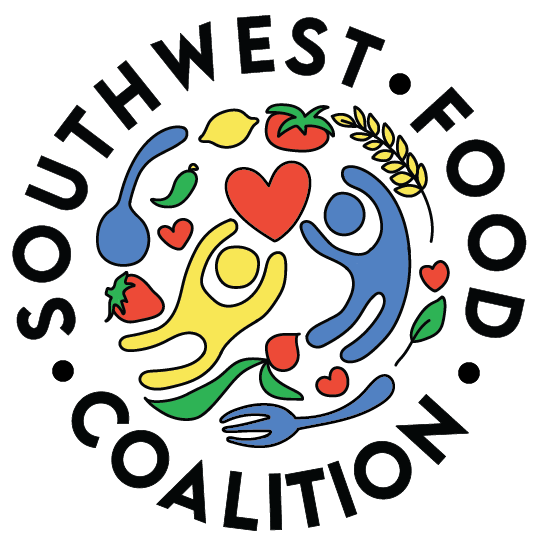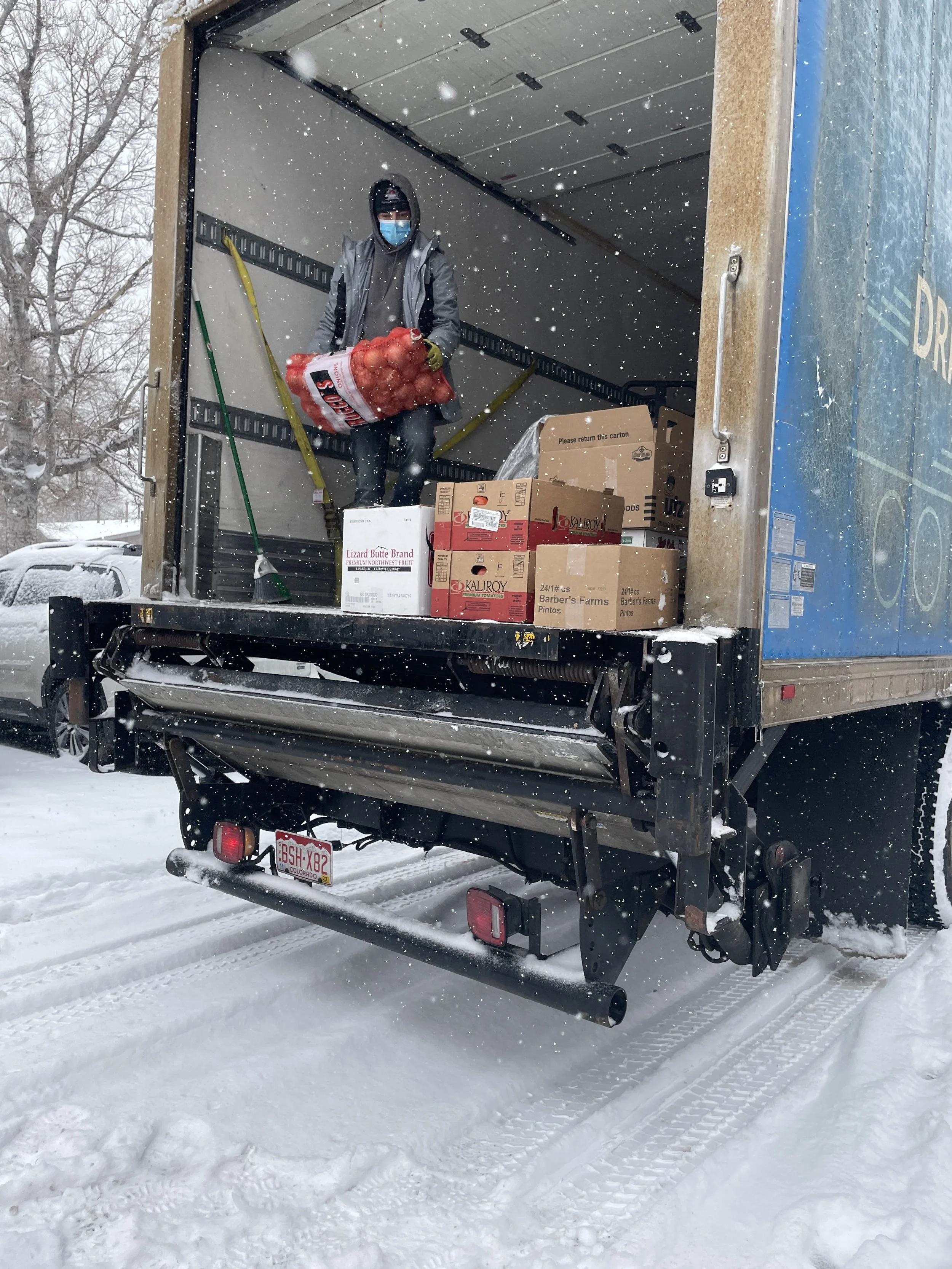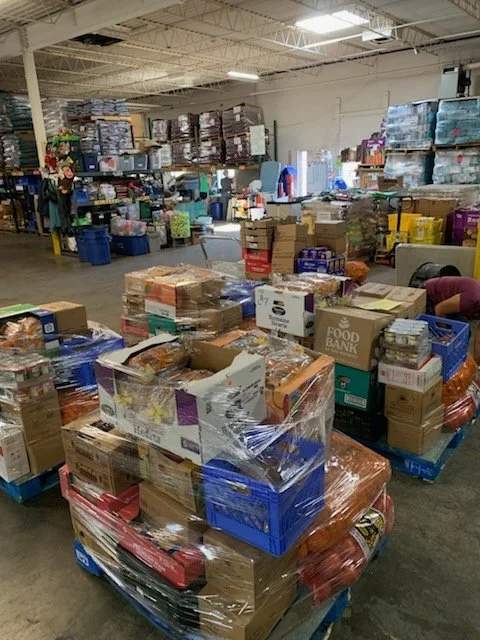Our last goal is to increase food access and improve food systems.
Food storage and transportation
Transportation and food storage are two major barriers to sustainable food access. Most organizations doing food distributions do not have the funding for staff, space or vehicles to store and transport the large quantities of food needed to feed their communities, not to mention the equipment, training, and time needed to manage those spaces. This leaves the majority of charitable organizations without the capacity to store and transport bulk food.
We’re addressing these barriers by providing transportation and storage for bulk food to our Southwest Food Coalition partners:
Transportation and food storage are two major barriers to sustainable food access. Most organizations doing food distributions do not have the funding for staff, space or vehicles to store and transport the large quantities of food needed to feed their communities, not to mention the equipment, training, and time needed to manage those spaces. This leaves the majority of charitable organizations without the capacity to store and transport bulk food.
We’re addressing these barriers by providing transportation and storage for bulk food to our Southwest Food Coalition partners:
-
How we're addressing transportation needs
We have a full-time driver and fleet of trucks, including a refrigerated truck, which allows us to deliver bulk food to charitable food distribution sites all around Southwest Denver. We currently deliver about 126,000 pounds of food to 26 different partner sites every month including schools, food pantries, and community organizations. We pick up food from locations like our Food Hub and Food Bank of the Rockies and deliver directly to our partners’ doors.

-
How we're addressing food storage needs
We manage the Southwest Hub, a centralized drop-off/pick-up location for bulk food with cold and dry storage in Englewood. Food Bank of the Rockies delivers bulk food directly to our warehouse twice a week and partners either pick up their order, or have their order delivered to their site by our driver and truck. This way, partners don’t have to rent box trucks and drive across town to and from FBR. This increases the amount of fresh food that all of our partners can order. Within the hub, we handle about 121,000 pounds of food per month from FBR.

How we’re addressing transportation needs
We have a full-time driver and fleet of trucks, including a refrigerated truck, which allows us to deliver bulk food to charitable food distribution sites all around Southwest Denver. We currently deliver about 126,000 pounds of food to 26 different partner sites every month including schools, food pantries, and community organizations. We pick up food from locations like our Food Hub and Food Bank of the Rockies and deliver directly to our partners’ doors.
How we’re addressing food storage needs
We manage the Southwest Hub, a centralized drop-off/pick-up location for bulk food with cold and dry storage in Englewood. Food Bank of the Rockies delivers bulk food directly to our warehouse twice a week and partners either pick up their order, or have their order delivered to their site by our driver and truck. This way, partners don’t have to rent box trucks and drive across town to and from FBR. This increases the amount of fresh food that all of our partners can order. Within the hub, we handle about 121,000 pounds of food per month from FBR.
Our Services
-

Basic
What should we know about the services you provide? Better descriptions result in more sales.
-

Advanced
What should we know about the services you provide? Better descriptions result in more sales.
Increase food Access and improve food systems:
Food Hub – manage shared warehouse space with cold and dry food storage. Food Bank of the Rockies delivers bulk food directly to our warehouse twice a week so partners don’t have to rent box trucks and drive across town. This increases the amount of fresh food that all of our partners can order. We receive 250,000 pounds of food per month from FBR.
Transportation: We have a full-time driver and fleet of trucks. We deliver 215,000 pounds of food per month to 26 different agencies. We pick up from dozens of locations around town and deliver directly to our partners doors.
Advocacy- our partners have made it clear that advocacy is one of their top priorities. Demand for food access has continued at an all time high, while funding is all but gone. We organized a Food Justice Fund advocacy campaign in 2023 and 2024. Our letter to City Council was signed by over 600 residents and 65 community agencies. City Council unanimously supported the funding twice. However, the Mayor did not allocate funding but did directed DDPHE to investigate the proposal in 2025. This year, we will continue on our Advocacy Campaign and reach higher as we investigate methods of funding this critical work.



